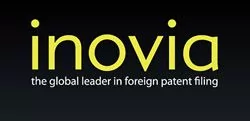In Managing IP magazine's recent IP clinic, IP professionals, including inovia's own Jeff Shieh, discussed different approaches to handle the questions, "How should I file patents abroad?" and "When is it worth using the PCT, PPHs or just filing nationally?"
IP executives from Qualcomm discussed the merits of filing via the Patent Cooperation Treaty (PCT). Qualcomm has been filing via the PCT for the past 25 years and likes that the PCT allows them to obtain an early (and relatively inexpensive) examination of the patentability of the claims, while reserving their right to file internationally in the future. They did note one downside; there are some countries that they file nationally into that are not members of the PCT, namely Argentina and Taiwan.
inovia's Senior Patent Attorney Jeff Shieh provided an overview of PCT vs. Paris Convention filing, as each has their distinct advantages. Some advantages to filing direct (via the Paris Convention) are that applications can be allowed faster (compared to those filed through the PCT) and it offers universal coverage (as some countries are not members of the PCT).
Finally, an IP executive from Caterpillar Inc. weighed in. Caterpillar files around 500-800 patents per year and uses several methods to reduce the cost of foreign filing. First, they've assessed a break-even point of three to four countries where it makes sense (cost-wise) to file via the PCT. Second, they use the Korean patent office as an International Search Authority because it is less expensive than using the EPO or USPTO. They've also brought some foreign filing steps in-house (a trend we identified among U.S. companies in our 2011 IP Trends Indicator). To cut costs, their in-house paralegal team prepares and files their PCT applications.
You can visit our resources page to learn more about foreign filing and PCT national stage entry. Already filing via the PCT? Register for our client portal to get a free cost estimate for your next application.
The content of this article is intended to provide a general guide to the subject matter. Specialist advice should be sought about your specific circumstances.

